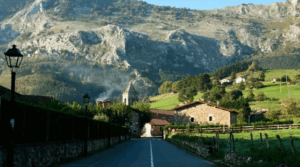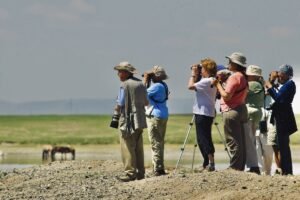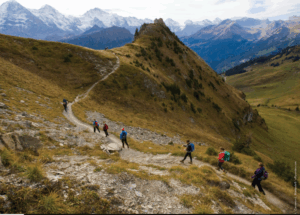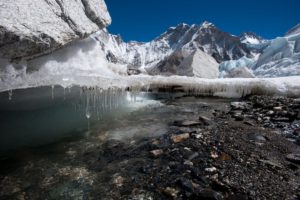World Environment Day 2017: Connecting people to nature
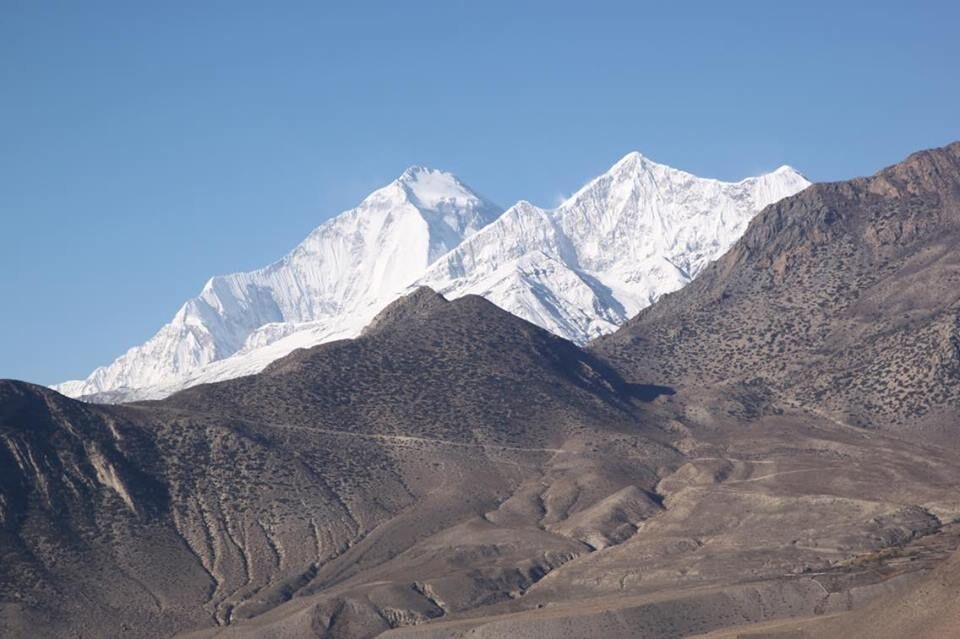
Sunita Ranabhat —
“Connecting people to nature”, the theme for World Environment Day 2017, encourages us to explore relationships between humans and nature, and understand the invaluable support nature lends to human well-being and prosperity. Every year, World Environment Day is marked on June 5 around the world to celebrate nature and its importance to human survival, and raise awareness on the importance of protecting and safeguarding it.
Human survival depends on nature, and its appreciation and recognition should concern us all. In an article published in 2010, scholars Judith Chen-Hsuan Cheng and Martha C Monroe state, “learning, understanding, experiencing nature, and living close to nature could positively influence the development of affective attitudes towards nature” and “increase interest in participating in nature based activities and performing nature friendly practices in the future”. Direct communion with nature strengthens our sense of being connected to nature, which is why this year’s theme urges us to experience nature first hand. It implores us to make an effort to understand nature and make it a point to involve ourselves in activities that are built around natural elements for today and for tomorrow.
Importance of nature
Humans are inherently connected to nature and have been dependent on it and its functions for millennia. The history of human existence and civilization is intertwined with nature. Humans cannot thrive without nature and its benefits. Nature and its elements are integrated into the daily lives of people. The goods and services that nature provides (ie, ecosystem services) contribute to human prosperity and wellbeing in countless ways. Human dependency on nature is not limited to subsistence. Economic and social development, and the cultural, emotional, and aesthetic aspects of our lives are dependent on and closely connected to nature.
A factsheet published by the United Nations in 2011, the International Year of Forests, states that the livelihoods of more than 1.6 billion people depend on forests, and that forests are home to 300 million people around the world. Forests supply human communities with materials necessary for household and commercial use. In developing countries, forests contribute 20–40% to an average household’s annual income. Besides provisioning services, nature provides regulating, supporting, and cultural services. For example, natural forces pollinate the world’s plants, regulate the earth’s climate, provide habitat to numerous species and remove pollution and toxins from water up to a certain extent. Forests, grasslands, and wetlands are storehouses of different medicinal and aromatic plants. Moreover, humans have in-depth spiritual, cultural, and religious connections with nature. There are evidences showing that closeness to nature and regular contact with the natural world improve emotional and psychological well-being.
However, the role of nature in society has changed with changes in societal needs. With industrialization, urbanization, and economic development, humans have distanced themselves from nature. Humans have long been taking nature for granted and ruthlessly exploiting it. According to the Millennium Ecosystem Assessment Report (2005), approximately 60% of the ecosystem services nature provides are being degraded or used unsustainably. Similarly, pollutants such as untreated sewage, chemical and pesticides, and injurious smoke are released into water, soil, and air. These have disastrous impacts on nature and ultimately, human beings.
Human reliance on nature is a reality. Human dependency on nature grows with economic growth. Demand for ecosystem services—hydroelectricity and (eco) tourism, for example—is on the rise. We need to value nature and recognize that we need to build a relationship of interdependence between nature and ourselves.
Nature and society in the Hindu Kush Himalaya
That people are connected to nature is an undeniable fact. This is evident especially in mountainous regions. Mountains, symbols of nature, provide a vast array of ecosystem goods and services to one-fifth of the world’s human population. The Hindu Kush Himalaya (HKH), one of the largest and most diversified mountainous regions, has great significance for geo-hydrological, biological, cultural, and aesthetic values. The rich biodiversity and natural resources of the HKH provide direct ecosystem services to more than 200 million people in the mountains and to 1.3 billion people in downstream river basins. The tangible and intangible services provided by the region are the basis for the livelihoods and economic growth of mountain people.
In the HKH, there are several activities currently being undertaken to establish and maintain a harmonious relationship between people and nature. Successful community based natural resource management approaches — community forests, buffer zone community forests, joint forest management — have been applauded internationally for their ability to contributions to the sustainable management of forests and fulfill local people’s demands for forest products. Furthermore, the promotion of ecotourism in the HKH values nature’s contributions to economic development at the local level and encourages people to conserve natural areas. Because nature is not confined by national boundaries, the people-centric transboundary landscapes approach in the HKH is contributing to the enhancement and restoration of landscapes with fostering economic development. It is helping maintain a sustainable supply of ecosystem goods and services to the both upstream and downstream populations. Moreover, climate smart practices — mulching, green manure, integrated pest management, and the use of bio-fertilizers and bio-pesticides — have helped revive traditional agricultural practices which, with technological advancement, had fallen out of use in many areas. Such practices are not only helping communities adapt to climate change impacts but reconnect with nature.
What can be done?
First, we need to change our habits. We need to stop polluting and degrading natural resources and need to commit to restoring and enhancing them. We need to set priorities and utilize renewable resources. Second, we need to spend time with nature and make it a point to take time out to connect with the natural world. Something as simple as maintaining a small garden on the balcony or having a potted plant on your desk at the office can help. Perhaps some weekends can be spent exploring nearby parks, mountains and forests. Third, we need to inculcate an appreciation of the natural world in our children. Families can do something outdoors together, if only once every week. Fourth, we must seek policy alignment. We need to advocate for policies that align with conservation and development to fully address human-nature interrelationships. Finally, regional cooperation is of utmost importance. We need regional level collaboration to conserve, manage, and utilize nature sustainably at the larger landscape level, and maintain harmony between humanity and nature.
Sunita Ranabhat is Ecosystem Analyst at the International Centre for integrated Mountain Development (ICIMOD.


